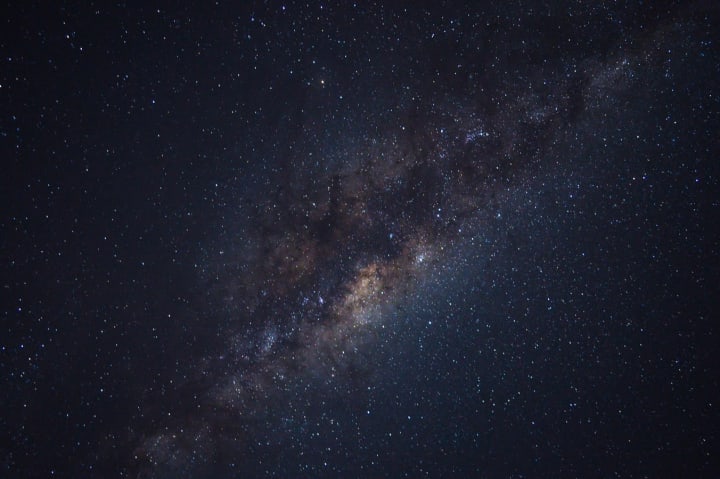Why We Might Be Alone in the Universe
Fermi Paradox...

Are we the only living things in the universe? That is a scary question to think about. Our observable universe stretches out 90,000,000,000 light years in diameter containing 100,000,000,000 galaxies each with 100,000,000,000 stars. Recently we just found out that planets are very common too. So, there should be lots of opportunity for life to develop and exist, but where is it? Shouldn't the universe be teeming with spaceships? Even if there are any alien civilizations in other galaxies, there is no way we'll ever know about them. Anything that is outside of our galactic "Local Group" is pretty much out of our reach forever, because of how fast our universe is expanding. Even if we had science fiction technology that could make our spaceships travel at the speed of light, it would literally take billions of years to reach these places. Traveling through the emptiest places in the universe.
Our Home Galaxy

The Milky Way is our home galaxy, it consists up to 400,000,000,000 stars. That's around 10,000 stars for every grain of sand on earth, and almost 20,000,000,000 sun like stars in our galaxy. Each containing around 1,000,000 Earth-sized planets in the "Habitable Zone" the area that enables life to exist. The Milky Way is only 13,000,000,000 years old while earth is only a staggering 4,000,000,000 years old. Wouldn't there be trillions of opportunities for life to exist in the past? If only one planet reached a space traveling civilization, we would have noticed by now. If there was such a civilization, what could it possibly look like? There are three categories that explain the evolution of civilizations. The first category is known as a "Type 1" civilization, which is a civilization that uses all of the home planets resources. If you are wondering, humanity is only about 0.72% of the way there. A "Type 2" civilization would be capable of harboring all of the nearest stars energy, with concepts such as the Dyson Sphere which takes a lot of science fiction but doable in principle. A "Type 3" civilization would be capable of using all of the home galaxy's energy for its sole benefit. So, if it takes a couple million years to colonize an entire galaxy using science fiction technology, and there are millions of planets that could harbor life in the Milky Way alone, and these civilizations had a considerably longer time to evolve than we have. Then where are all the aliens? That is the Fermi Paradox and nobody has an answer to it. Right now, we have no evidence that there is life besides us. The universe appears to be empty and dead. No one is sending us messages or answering radio signals, we may be completely alone. Trapped on a tiny mud ball in this ever so expanding eternal universe, if that thought scares you, you are having the correct emotional reaction. If we let life die on this planet, perhaps, maybe, there will be no more life left in the universe. Life as we know it would be totally gone, maybe forever. If this is the case, we just have to be the first Type 3 civilization and venture out into the emptiness of our galaxy to spread life until the universe takes its final breath.
About the Creator
Jake Thunberg
Science junkie, cat enthusiast, with a tad of wanderlust. To inspire those around me one word at a time.






Comments
There are no comments for this story
Be the first to respond and start the conversation.